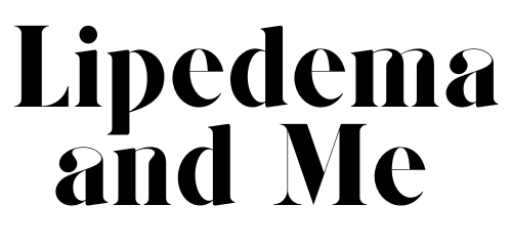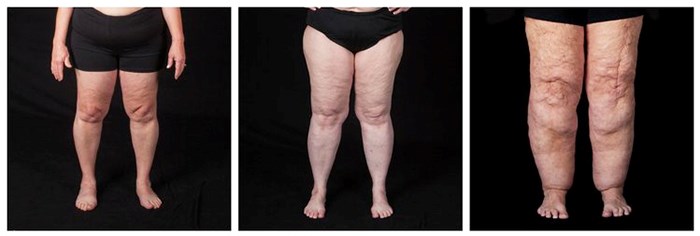Lipedema Awareness Month is fast approaching, and with it being my third year fully emerged in the world of Lipedema, I feel it’s vital to spread some awareness.
Lipedema is a common condition, but the education around it is seriously lacking. It can be extremely isolating living with Lipedema, I know that has been the experience for me since my teens. I can’t even begin to imagine what it’s like for women in the latter stages who have serious mobility issues.
Lipedema Awareness Month is a brilliant opportunity to share all the amazing resources and support platforms I have discovered since my Lipedema diagnosis at the end of last year.
Navigating the ups and downs of Lipedema can be extremely lonely at times, however one of the best things that has come from my stage 2 Lipedema diagnosis is the incredible support I have received from other women in the community. My hope is that you can find the same thing.
Lipedema Subreddit
One of the proudest moments in my Lipedema journey was co-creating the r/lipedema subreddit with another amazing Lipedema warrior last year. What started as a small support space has rapidly grown into a trusted hub for thousands of people navigating life with Lipedema. It’s a anonymous, welcoming, judgment-free community where you can ask questions, share experiences, and learn from others at every stage of their diagnosis or treatment. We also regularly host Ask Me Anything (AMA) sessions with some of the most respected voices in the Lipedema world – giving you the chance to connect directly with experts. Feel free to join us and become part of a truly empowering space.
Facebook groups
One of the very first things I did after getting my Lipedema diagnosis was to search and join various Lipedema related Facebook groups. Not only did this make me realise that I wasn’t alone in the physical appearance of my body, which I have hated for so many years, but it was comforting to know that my feelings surrounding the condition were valid too.
One of the best groups I have joined is ‘Lipoedema Lipemedical UK Patients’, this is a closed group for UK women who have had, or will be having surgery with Lipemedical in Madrid. If this applies to you, I seriously suggest that you join.
Preparing for Lipedema liposuction, especially in another country, can be daunting. Having a place to voice any concerns I’ve had, or ask any questions has been a life saver.
Other groups for lippy ladies are, ‘Lipedema Sisters Support Group’, ‘The Lipedema Journey’, ‘Lipedema Movement & Fitness’ and more recently I have joined ‘Vibration for Fat Disorders’. See my blog ‘Vibration plate for Lipedema’ to discover the benefits of vibration therapy for women with Lipedema.
Instagram community
When I started this blog a couple of years ago, I wasn’t expecting there to be so many women interested in what I have to say. It was solely to help women understand more about the condition, because I would have benefitted from resources like this at the beginning of my Lipedema journey.
I was sure I would never start an Instagram page due to me being so ashamed of my body, but with some encouragement from women I’ve spoken to along the way, I decided to take the plunge. It’s one of the best decisions I’ve made. The sheer amount of love and support I have received since starting Lipedema and Me has been both unexpected and amazing!
Even if you don’t feel ready to start an account dedicated to Lipedema, I suggest you follow a few Lipedema related accounts from your personal account. My account is lipedema_and_me, feel free to give me a follow. Some other fabulous accounts are: Sarah.vs.lipoedema, the_lipedema_mama, lipedemaboss, lipedema_webbie, lipedeme and Lipoedema.sophie. The sense of community is something I have never experienced before, I’m eternally grateful for it.
YouTube channels
Another great platform to learn more about Lipedema and realise you’re not alone in the way you’re feeling is YouTube. There are several women who document their daily life with Lipedema, especially when they’re having surgery and during their recovery.
I have found watching these channels to be really informative and comforting too. Knowing that other ladies are suffering with the physical, mental and emotional turmoil that comes with Lipedema is sad, but it also makes you realise that we are all in this together.
Some of my favourites are: The Lipedema Mama, Gabriella and LipedeME. They have all either had surgery already, or are in the process of having it. Their videos have been really valuable to me and helped me a lot in my run up to my Lipedema Reduction Surgery with Lipemedical in October 2023.
Disclaimer: My blogs talk about Lipedema, diet, surgery and much more. I’m talking from my point of view to help women, and remind them they are not alone. I am not a medical professional, so the content above is from my own perspective with research I have done into the topic. It’s not meant as medical advice, you should always consult your doctor or a specialist for both your diagnosis, and a treatment plan.


